Celebrating Angela Scoular, 1945-2011
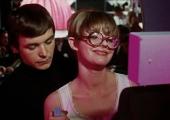

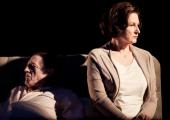
One wants to be antagonised by Harold Pinter. In his substantial early dramas (The Homecoming, The Caretaker, The Birthday Party), aggression and menace coil through the texts like rattlesnakes. He was, then, revolutionary. Maybe it's glib - critical shorthand - to suggest that there were, thereafter, two to three decades of falling away; but some of us might feel that much of his later work either became hijacked by his belligerent, unnuanced politics or, simply and contrastingly, softened.
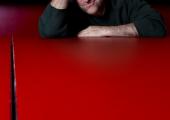
Omid Djalili is a funny man with a funny provenance. There are not many stand-ups about who speak the languages of Presidents Havel and Ahmedinejad, who have played both Muslims and Jews without being either one or the other, whose CV includes stints performing Berkoff in Slovak and playing Whoopi Goldberg’s sidekick on NBC. In fact none. Djalili is by his own admission an accidental comedian. Though born (in 1965) in the United Kingdom, his Iranian roots made him an intriguing curiosity when he ditched acting for telling jokes. Then the War on Terror turned his comedy into a timely window on the Middle East.
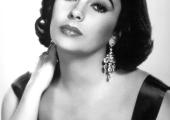
By the time she was created a Dame – on the same day as Julie Andrews in 2000 - Elizabeth Taylor’s significance to the film industry had long since passed. She died today at the age of 79. For years she has been of interest to the headline writers only as the wife of Larry Fortensky, the seventh man to put a ring on her finger (Burton famously did it twice) and her intriguing and possibly co-dependent friendship with her fellow child star Michael Jackson. But let us remember on this day, that at least where actresses are concerned, she stands proud as this country’s most glamorous export to Hollywood.
By the time she was created a Dame – on the same day as Julie Andrews in 2000 - Elizabeth Taylor’s significance to the film industry had long since passed. She died today at the age of 79. For years she has been of interest to the headline writers only as the wife of Larry Fortensky, the seventh man to put a ring on her finger (Burton famously did it twice) and her intriguing and possibly co-dependent friendship with her fellow child star Michael Jackson. But let us remember on this day that, at least where actresses are concerned, she stands proud as this country’s most glamorous export to Hollywood.

I can tell you the year (1983). I can tell you the theatre (the newly opened Barbican), the actors (Gambon, Sher), and the speech (“Blow, winds, and crack your cheeks!”). Hell, I can all but tell you the seat number. Lear and the Fool in the storm stood on a platform mounted on a high pole. It was an arresting way of establishing their elemental isolation. Or it would have been if the gantry gaining the actors access to the platform had been withdrawn. “That’s not meant to be there,” said the person next door to me. And then louder, “They’ve got it wrong.” My father.
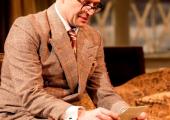
A disproportionate number of column inches seem to have been devoted to James Purefoy’s matinee-idol looks, his ability to carry off a pair of breeches and the amount of time he appears on television naked. However, while he has admittedly spent much of his career swaggering around in period costume - Vanity Fair with Reese Witherspoon, Mark Antony in HBO’s Rome, the recently released Ironclad - he has also played, among many other things, a psychopathic rapist, a stalker and the fraudster Darius Guppy.
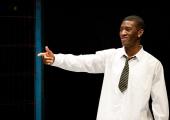
Recently, some British playwrights have gone back to school, and found that it feels very much like a war zone. All the old tensions between teachers and pupils have escalated into open conflict: knives are drawn, punches thrown and arguments are settled by fights. Likewise, the language is disrespectful at best, and always expletive-heavy. Vivienne Franzmann’s new play, which visits London after opening in Manchester last month, frankly refers to a war zone in its title, and its action is scarcely less antagonistic.
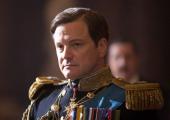
In some ways it’s been an odd career. Everyone else in Another Country (1982), the stage play by Julian Mitchell about gays and Marxists in a 1930s English public school, shot out of the blocks. Colin Firth was the only actor to play both lead parts, one onstage, the other on film (1984), but he took the slower road to outright stardom and only now is he clearly the bigger cheese than Rupert Everett, Kenneth Branagh and possibly even Daniel Day-Lewis.
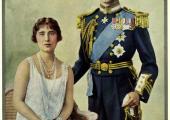
@Wossy seems to have been cast as second baddie in #PiratesduCaribbean 4
This intro is entirely about namechecking the films so they can cut away to the US stars who've jetted in from #Tinseltown
Lame string of Little Fockers jokes.
These clips montages always make films look like the complete Shakespeare. Then you go and see them...
@Wossy seems to have been cast as second baddie in #PiratesduCaribbean 4
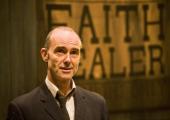
Theatre, particularly tragedy, can pack a terrific punch when things are kept simple – even if the themes evoked are enfolded in layer upon layer of complexity. Brian Friel’s Faith Healer, a play with three characters, each of whom takes to the stage alone, explores in a multifaceted way the life of an itinerant Irish healer who plies his trade along the backroads of the Celtic fringes of Britain.